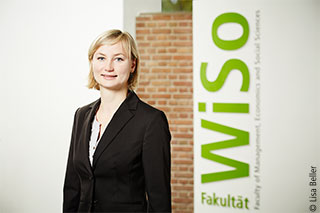Grandchildren are generally regarded as an enrichment for the life of older people. In a new study, Wiso Professor Dr Lea Ellwardt from the Institute for Sociology and Social Psychology (ISS) has investigated whether life expectancy differs between people with and without grandchildren. She conducted the study together with her ISS-colleague Prof. Dr Karsten Hank and Prof. Dr Mendes de Leon (University of Michigan, School of Public Health).
For this purpose, survey data from the Health and Retirement Study (HRS) and official register data collected in the USA over the period from 1992 to 2014 were used. In their sample, Prof. Dr. Ellwardt and her colleagues examined 27,463 participants aged 51 years and older. They analysed only participants who had children in order to exclude comparisons with childless people. Some of them also had grandchildren. Confounding variables such as health limitations were also accounted for.
Overall, the study results do not show an association of grandparenthood and mortality. However, there were some exceptions: Grandmothers who have a partner, are younger than 65 or have a larger number of grandchildren (4 or more) have an increased risk of mortality compared to non-grandmothers. These groups may have many social responsibilities with limited socioeconomic and time resources. In contrast, widowed grandmothers were found to have a survival advantage over non-grandmothers. It is possible that the focus on grandchildren buffers some negative consequences caused by the loss of a spouse.
These findings suggest that grandchildren can play an important role in the lives of older people. More research is needed on the extent and quality of contact with grandchildren, for which the current study had no data.
